30+ Amazing Fictional INTJ Characters
When people think “INTJ,” they usually picture the villain: cold, calculating, a few steps ahead, maybe petting a cat menacingly. And sure, there are some compelling INTJ antagonists out there. But let’s not overlook the fact that many INTJs are heroes, strategists, and complex human beings trying to do the right thing in a messy world. Today we’re diving into twelve (soon to be more!) fictional INTJs who offer us vision, drive, and razor-sharp insight—sometimes for good, sometimes for… chaos.
Not sure what your personality type is? Take our personality questionnaire here. Or you can take the official MBTI® here.
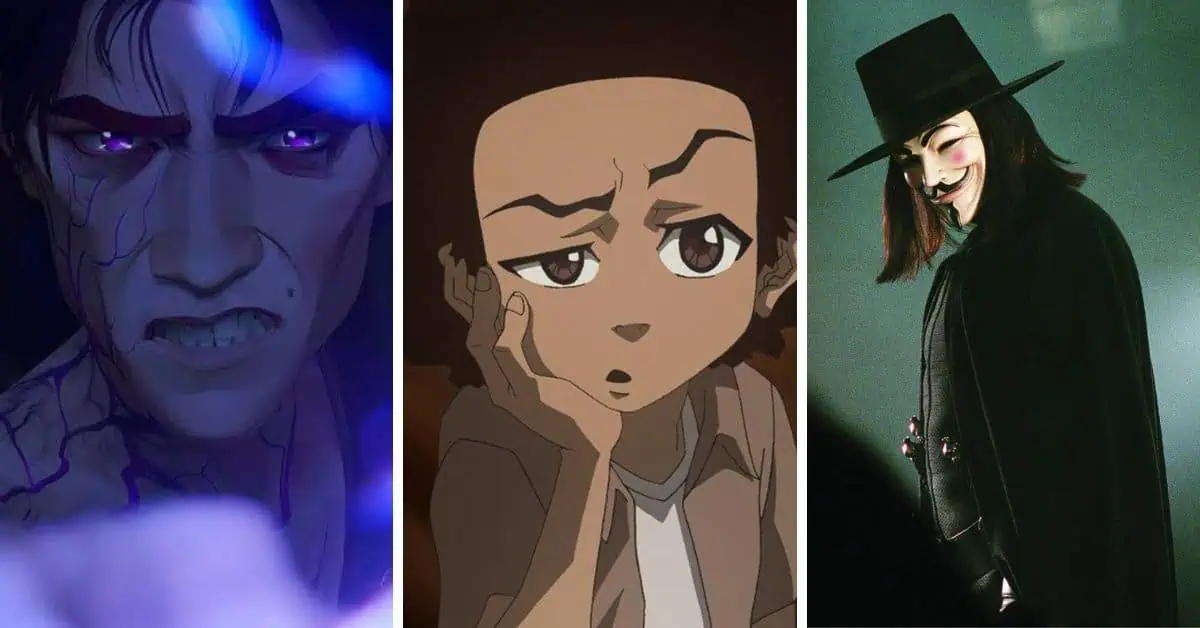
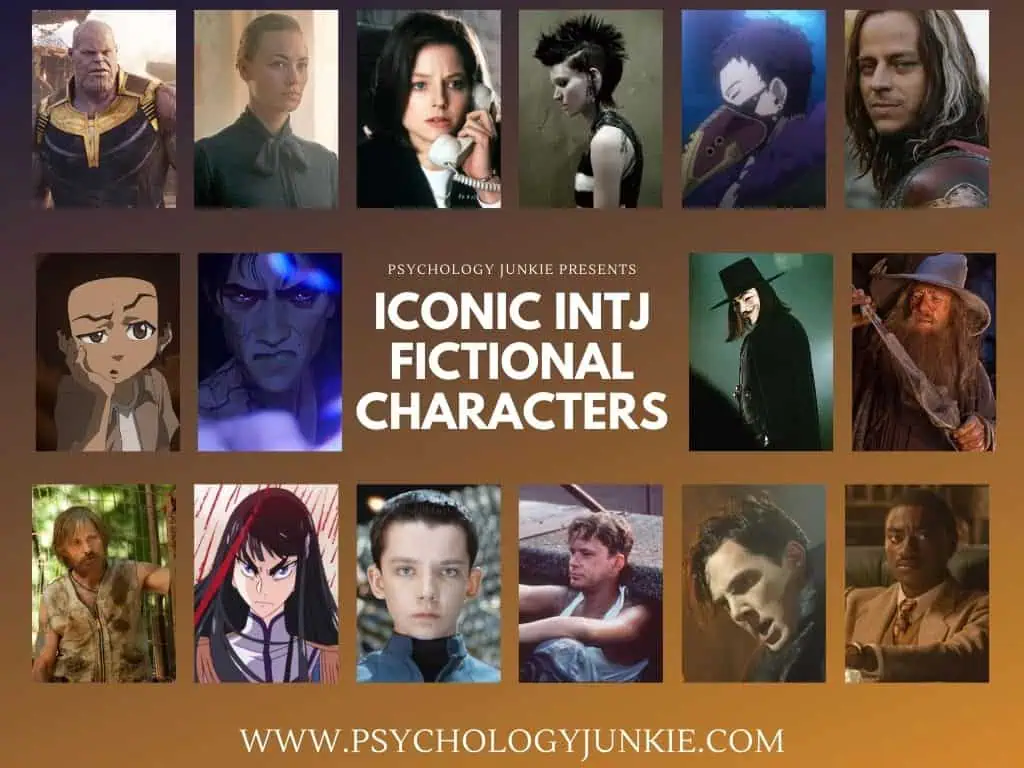
30+ Fictional INTJ Characters
#1 – Bruce Wayne “Batman”
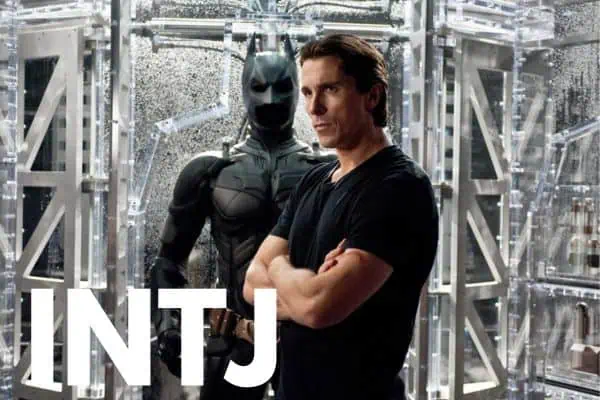
“The night is darkest just before the dawn. And I promise you, the dawn is coming.” – Batman
Batman is what happens when an INTJ uses grief as rocket fuel. Singularly focused, strategic, and emotionally guarded, Bruce Wayne transforms personal tragedy into a life mission. Bruce’s dominant Intuition gives him the focus of a man who’s already thinking five years ahead while pretending to sip champagne at a gala. His Te organizes every crime-fighting contingency into neat little files labeled “emergency,” “worse emergency,” and “Joker again.” He’s emotionally guarded, romantically unavailable, and the guy you want on your team during a crisis—right before he vanishes mid-sentence to do something impossible.
Underneath the brooding? A core of Fi that won’t compromise. He won’t quit. He’s a man who looked into the abyss—and built a cave under it.
#2 – Antonio Salieri in “Amadeus”
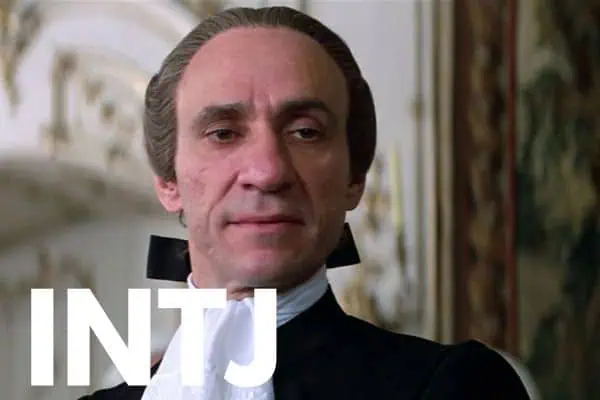
“I heard the music of true forgiveness filling the theater, conferring on all who sat there, perfect absolution. God was singing through this little man to all the world, unstoppable, making my defeat more bitter with every passing bar.” – Antonio Salieri
Salieri embodies the dark edge of the INTJ’s relentless pursuit of excellence. Gifted, devout, and painfully self-aware, he stares down Mozart’s effortless brilliance and realizes with crushing clarity that he’ll never touch it. Not because he’s bad. Because he’s merely… good.
And that’s where it fractures. His Ni zeroes in on the injustice. His Te crafts a strategy to sabotage Mozart’s rise to the top. He’s overwhelmed by existential despair. He gave his life to the pursuit of greatness, only to be upstaged by a chaotic genius with divine talent and zero social filters.
#3 – Lisbeth Salander from “The Girl with the Dragon Tattoo”
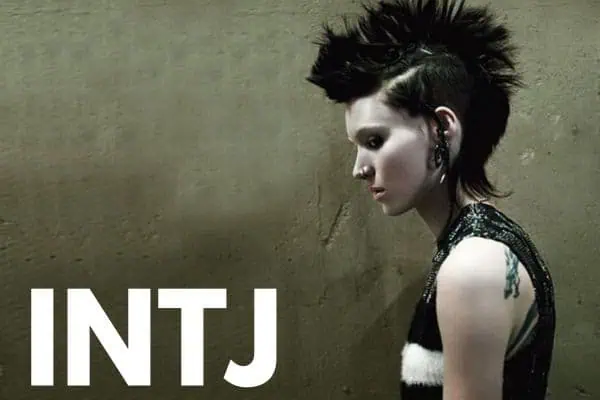
“Much stronger boys in her class soon learned that it could be quite unpleasant to fight with that skinny girl. Unlike other girls in the class, she never backed down, and she would not for a second hesitate to use her fists or any weapon at hand to protect herself. She went around with the attitude that she would rather be beaten to death than take any shit.” – Quote about Lisbeth Salander from Stieg Larsson’s “The Girl with the Dragon Tattoo”
Lisbeth is what happens when an INTJ survives hell and turns the trauma into hard drive encryption. She’s razor-sharp, emotionally fortified, and allergic to small talk and predators alike.
Her Ni is so refined she could probably sense a hidden folder on your desktop just by looking at your posture. And her Te? It’s vengeance in spreadsheet form. If she retaliates, she builds a plan so airtight it feels karmic.
But beneath the hacker hoodie and the thousand-yard stare, there’s Fi. Not warm-and-fuzzy Fi—fiery, moral, righteous Fi. She doesn’t just hate abusers. She dismantles them. And then she walks away, alone, because connection has always felt more dangerous than justice.
#4 – Ender Wiggin from “Ender’s Game”
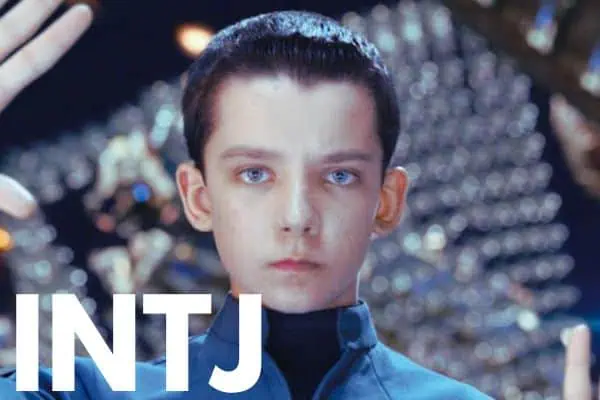
“He walked down the corridor, lined with his soldiers, who looked at him with love, with awe, with trust. Except Bean, who looked at him with anguish. Ender Wiggin was not larger than life, Bean knew. He was exactly life-sized, and so his larger-than-life burden was too much for him. And yet he was bearing it. So far.” – Orson Scott Card, Ender’s Game
Ender is that rare INTJ who can disarm you with strategy or soul. He’s a prodigy, sure—but what makes him lethal isn’t just intellect. It’s empathy so deep it borders on cosmic. He captures the INTJ’s tertiary Introverted Feeling and how it can show up in a deep-seated desire for justice, fairness, and meaning.
Ni? Dominant and terrifying. Te? Streamlined and tactical. But what makes Ender different from your average mastermind is that his Fi isn’t buried. Every decision cuts him. Every victory wounds him.
He doesn’t want to destroy. He wants to prevent. But because he’s an INTJ, his prevention often looks like preemptive annihilation… delivered with soul-crushing accuracy.
#5 – Gill from “Finding Nemo”
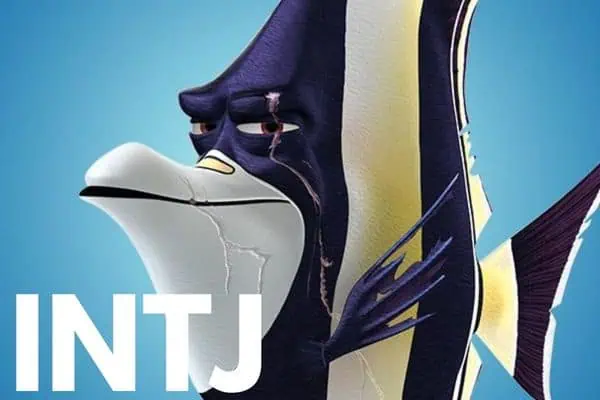
“Fish aren’t meant to be in a box, kid. It does things to them.” – Gill, Finding Nemo
Let’s talk about the fish in the tank who’s already planning his fifth escape attempt. Gill is the INTJ as crusty war general—gruff, focused, and frustrated by anyone slowing down the mission. He doesn’t do warm and fuzzy. He does blueprints and grim metaphors.
Gill’s dominant Ni is locked on one thing: freedom. And his Te goes into full-on project manager mode, assigning roles, analyzing flaws, and rolling with setbacks like it’s Tuesday. He’s not here to chat about feelings. He’s here to chew algae and escape captivity—and he’s all out of algae.
But under all that gravelly intensity is someone who cares. He sees potential in Nemo. He mentors with hard truths and backup plans. He’s the INTJ who doesn’t ask for trust. He earns it by getting you out alive.
#6 – Fitzwilliam Darcy – Pride and Prejudice
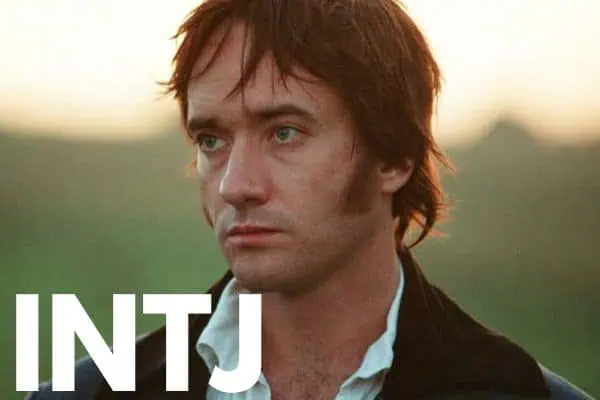
“My good opinion once lost, is lost forever.”
Darcy may seem cold, but he cares more than he lets on. He evaluates situations quickly, but he doesn’t say much unless it’s important. Socially awkward? Sure. But he’s also strategic, values-driven, and loyal once he lets someone in. His tendency to retreat inward, especially in social settings, screams INTJ. And while he may appear haughty, his arc is ultimately about growth—learning to temper vision with humility and open his mind without sacrificing his core integrity.
#7 – Clarice Starling – The Silence of the Lambs
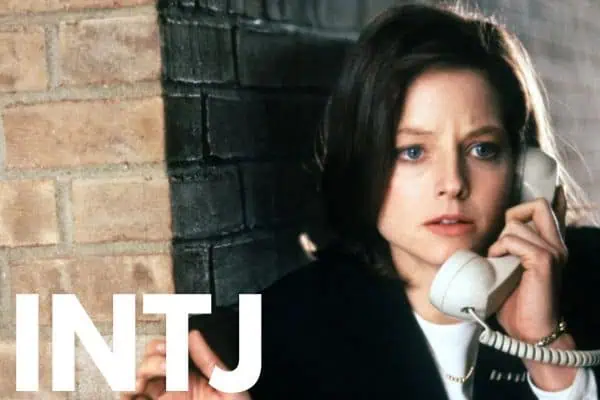
“Why Don’t You Look At Yourself And Write Down What You See? Or Maybe You’re Afraid To.”
Clarice is the INTJ who doesn’t waste energy pretending to be impressed by you. She’s composed, competent, and clocking your psychological profile while you’re still trying to remember her name. She walks into rooms full of men who underestimate her and leaves them speechless—with either evidence or a loaded gun.
Her Ni lets her see through Hannibal Lecter’s games while everyone else is still distracted by the cannibalism. Her Te keeps her focused, crisp, unshaken.
And her Fi? Quiet, but steel-forged. Clarice doesn’t cry on cue. She internalizes, endures, and keeps walking forward. Her empathy is active, not theatrical. She’s not trying to be likable—she’s trying to survive, succeed, and maybe tear down a broken system in the process.
#8 – Ray – The Promised Neverland

“I endured it, and I worked hard to improve my value to the highest it could be.”
Ray is the kind of kid who makes you wonder if he’s already seen the entire series and is just playing his part until the finale. He’s cynical, calculated, and years ahead of everyone else mentally. At first he seems heartless- but like many INTJs, he hides his heart. He sees it as irrelevant to others, even though it’s constantly guiding him. Ray is willing to burn for the people he loves, and he’ll do it without asking for credit. His strategic mind, paired with a tendency to emotionally withdraw, is pure INTJ.
#9 – Khan – Star Trek Into Darkness
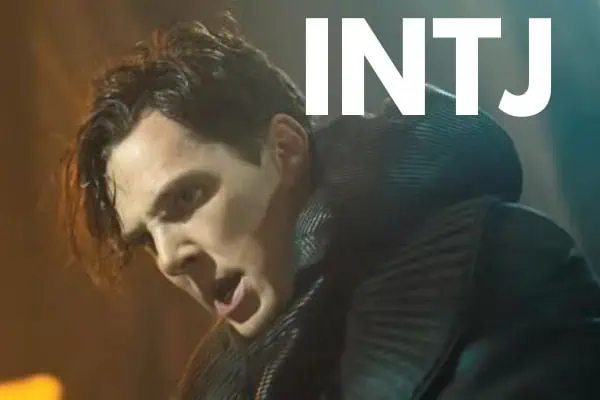
“My crew is my family, Kirk. Is there anything you would not do for your family?”
Khan is the dark INTJ trope turned up to eleven: ruthless, strategic, and terrifyingly efficient. Every move he makes is three-dimensional. He sees the patterns in people, systems, and politics—and he’s not afraid to weaponize them. Yet despite his villain status, Khan’s core motivation is surprisingly human: protect his people. His Ni–Te combo gives him foresight, discipline, and unwavering execution. If he’s terrifying, it’s because he’s right.
#10 – Sister Andrea – Evil
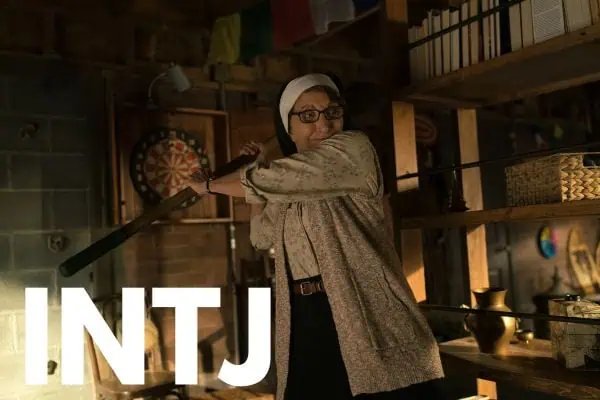
“You don’t scare me, Leland. I’ve dealt with scarier things than you in the dark.”
Sister Andrea is the kind of nun who’ll exorcise a demon, insult a sociopath, and still be home in time for Vespers. She’s the INTJ as holy chaos—serene, blunt, and spiritually loaded for bear.
Her Ni lets her see through darkness—literal, metaphorical, bureaucratic. She names evil without worrying about what people think. Her Te gives her structure and confidence. She acts, and dares you to question her afterward.
But her Fi is the candle in the middle of it all—flickering but unwavering. She’s not here for applause. She’s here for truth, justice, and probably a deeply sarcastic remark. She believes in God. She also believes in stabbing demons with a letter opener if that’s what the situation calls for.
#11 – Serena Joy Waterford – The Handmaid’s Tale
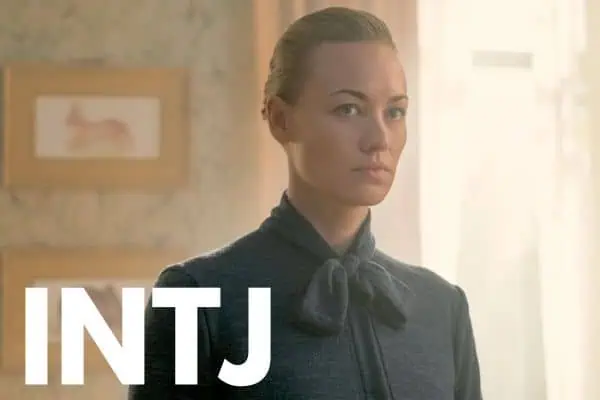
“You’re Spoiled, You’re Privileged…
…And You’re Living In An Academic Bubble. All Of You!”
Serena Joy is what happens when an INTJ’s strategic genius is fused with ideological fanaticism and simmering bitterness. Cold, brilliant, and unapologetically manipulative, she isn’t just a product of Gilead—she’s one of its architects. Her Ni–Te combination is on full display as she constructs a system designed to institutionalize control, then positions herself at the top of it—only to find that even its architects are not safe from its cruelty.
In the early seasons, Serena is ruthless in pursuit of her goal: motherhood. Everything else—freedom, fairness, human decency—becomes collateral damage. And while her demeanor is composed, her inner world burns with rage. She doesn’t lash out without reason. She calculates. She selects the moment, the target, the language. She plays the long game. That’s what makes her dangerous.
And yet, like many INTJs caught in the wreckage of their own creation, she begins to unravel. She begins to see the unintended consequences of her vision. Love doesn’t soften her completely, but it reorients her. She tries to pivot, re-strategize, survive in a new context. The results are morally murky at best.
Serena is proof that INTJ traits—visionary thinking, emotional detachment, and ideological intensity—can be wielded for control or for change. In her, we see both the architect of a dystopia and a woman quietly suffocating in the walls she helped build.
#12 – Dominick Cobb – Inception
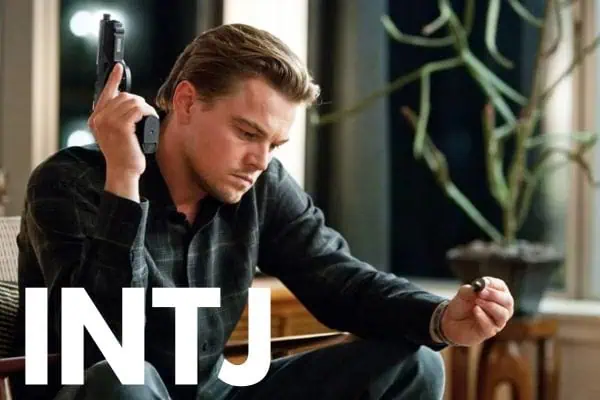
“What is the most resilient parasite? Bacteria? A virus? An intestinal worm? An idea. Resilient… highly contagious. Once an idea has taken hold of the brain it’s almost impossible to eradicate.”
If INTJs are the long-range strategists of the personality world, Cobb is their dream-hopping poster child. He’s singularly focused, relentlessly analytical, and unflinchingly private. Everything in his life is a construct—of memory, meaning, or defense. Reality becomes a chessboard, and he’s always thinking five moves ahead, even when his own subconscious is setting traps on the board.
Cobb’s dominant intuition (Ni) makes him obsessed with the abstract: ideas, patterns, meaning. His Te keeps him organized and goal-focused. Every detail of the dreamscape is calibrated. Every team member has a function.
But Cobb is haunted—by overwhelming memories, sensory flashes, and the pull of raw emotion. His wife’s death becomes a looping, visceral presence that constantly threatens to sabotage his precision. Cobb folds it into the architecture of grief. He builds around it. Because that’s what INTJs do with pain—they use it to reinforce the structure.
13. Ben Cash – Captain Fantastic
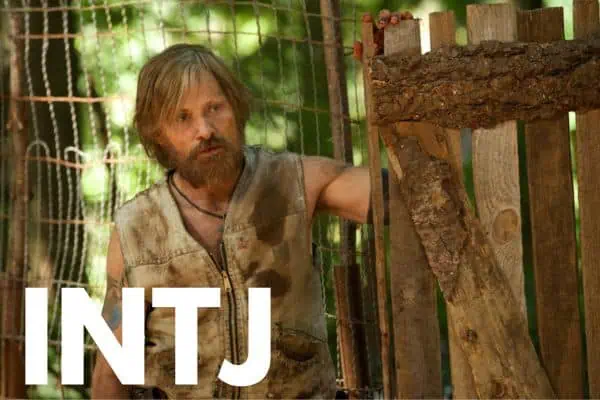
“You would prefer to celebrate a magical fictitious elf, instead of a living humanitarian who’s done so much to promote human rights and understanding?”
Ben Cash is what happens when an INTJ decides society is broken—and then walks off the grid to build a better one from scratch. Visionary, uncompromising, and intellectually relentless, he crafts a world where his children study philosophy at breakfast, hunt for dinner, and debate Noam Chomsky instead of celebrating Santa Claus.
Ben’s dominant Ni is visible in everything from the way he anticipates his children’s questions before they ask them to the way he constructs an alternate society based on his own vision, not trends. He’s strategic, intensely future-focused, and disgusted by conformity. His Te shows up in the rigor of his systems—the schedules, the physical training, the cold-blooded logic behind why his family lives as they do. There’s a plan, and it doesn’t include sentimentality.
14. Marcus Hooks – Fellow Travelers
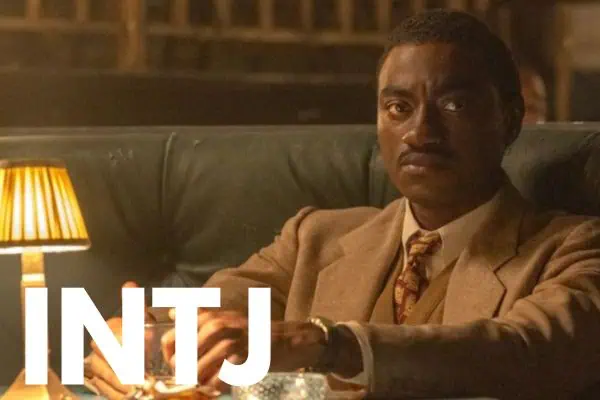
“You think you can just be who you are and not lose anything? That the world lets people like us have that kind of freedom?”
Marcus is a man with three full-time jobs: respected journalist, closeted lover, and high-stakes strategist navigating racism, homophobia, and career politics in 1950s D.C. His Ni tracks threats before they appear. His Te gets the story on time, in print, and unflinching.
He calculates everything—down to the cadence of his voice in a meeting and the angle of a glance on the street. Frankie—unapologetic, flamboyant, fearless—short-circuits that system. Not with argument, but with presence.
Marcus doesn’t melt. He fractures. The rules he’s written for safety and success can’t make room for feeling. But the heart isn’t a negotiable detail. And in trying to contain it, he starts to lose himself.
15. Viktor – Arcane
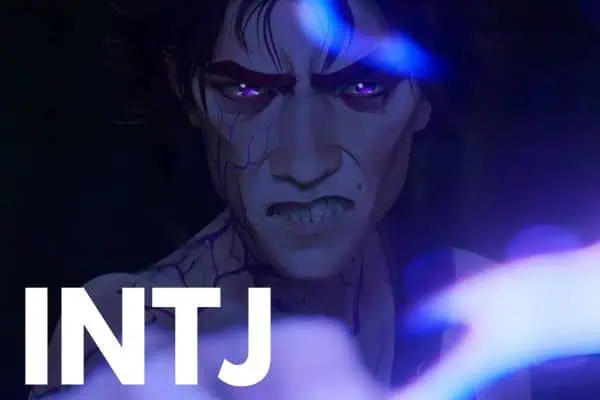
“Knowledge is a paradox. . . The more one knows, the more he realizes the vastness of his ignorance.”
Viktor is the kind of INTJ whose vision burns so brightly it nearly consumes him—and nearly everyone around him. A genius from the Undercity, Viktor is driven not by greed or ego, but by an aching need to solve suffering. He sees injustice as a solvable equation. He sees himself as the missing variable. And he’s willing to pay any price—his health, his humanity, even his soul—to solve it.
His dominant Introverted Intuition (Ni) is relentless. Viktor follows his ideas to their inevitable conclusion. From childhood, he could see what others missed: patterns, potentials, hidden paths. He builds toward a future most people can’t imagine, and his auxiliary Te gives him the discipline to make it real. He’s the architect laying the blueprint while the tower is already burning.
But Viktor’s tragedy is a familiar INTJ trap: he believes the end can justify the means. In his desperation to escape his failing body, to leave a legacy that uplifts the Undercity, he makes compromises. He turns to Shimmer. He allows the Hexcore to evolve without fully understanding what it demands in return.
16. Song Hyo-Jin – Daily Dose of Sunshine
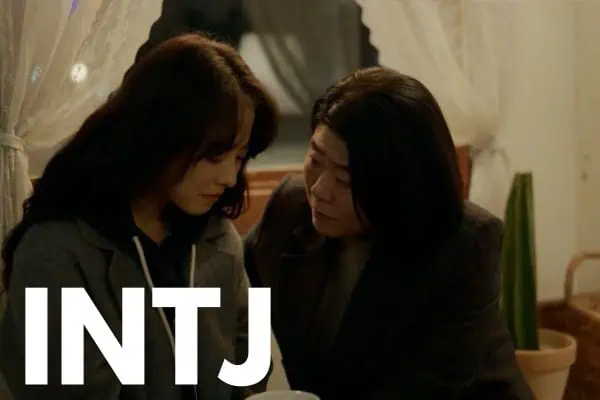
Song Hyo-Jin is an INTJ with a spine of steel and a heart wired for justice. As the head nurse navigating a psychiatric ward—and the pain of a sister living with schizophrenia—Hyo-Jin walks the razor’s edge between authority and empathy.
Her dominant Ni gives her a rare capacity for insight. She sees the long game—not just in treatment plans or hospital politics, but in the slow dismantling of prejudice. Her Te shows up in her structure, her discipline, and her take-no-BS leadership style. She’s strict—with herself first, and with others second. She believes in order, because chaos costs lives. But she’s not a cold administrator. Her Fi runs deep beneath the surface, guiding every decision with personal conviction.
17. Cho Sang-Woo – Squid Game
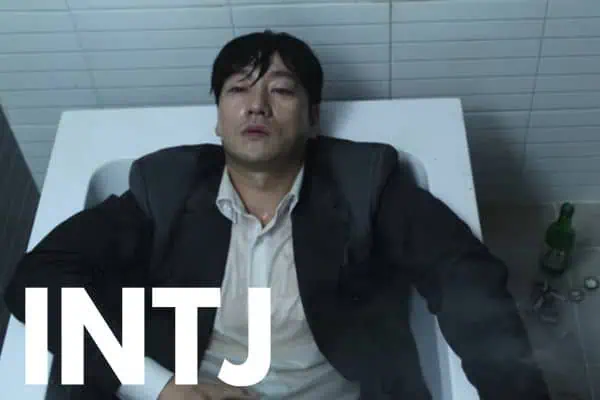
“That’s the price of being in here. And your wife and the others paid it with their lives. And you wanna go and leave? You wanna start from the beginning again? You ready to do all that, huh? Starting over again from nothing with that guilt.”
Sang-Woo plays life like it’s a numbers game—because it’s the only way he can stand to look at it. With his Ni, he anticipates patterns and pressure points. His Te handles the math. Morality, though? That’s where things get murky.
There’s guilt under his calculations, even if he doesn’t say it. He hesitates with Ali. He flinches after Sae-byeok. He’s not indifferent—he’s cornered. Pride won’t let him break. Shame won’t let him breathe. He’s always been the smart one, the promising one. Failing isn’t just failure—it’s erasure.
What finally undoes him isn’t defeat. It’s mercy. Gi-hun’s refusal to fight back pulls the floor out from under him. And Sang-Woo chooses the only ending he thinks he can live with—by making sure someone else walks out alive.
18. Elizabeth “Beth” Harmon – The Queen’s Gambit

“It’s an entire world of just 64 squares. I feel safe in it. I can control it. I can dominate it. And it’s predictable.”
Beth Harmon is brilliant, volatile, and burning with a need for mastery in a world that feels otherwise uncontrollable. She studies patterns not just on the chess board, but in people, language, and systems. She’s the kind of person who can pick up Russian in five years, drink every man under the table, and still destroy them at the board before sunrise. All while silently imploding under the weight of her own mind.
But like many INTJs under stress, Beth struggles with her Se inferior—her pull toward sensation, her hunger to feel something when the silence gets too loud. Addiction, for her, is a flawed form of control. A numbing agent for the noise of trauma and expectation. She’s not reckless because she doesn’t care. She’s reckless because sometimes caring feels unbearable.
19. Shoto Todoroki – My Hero Academia
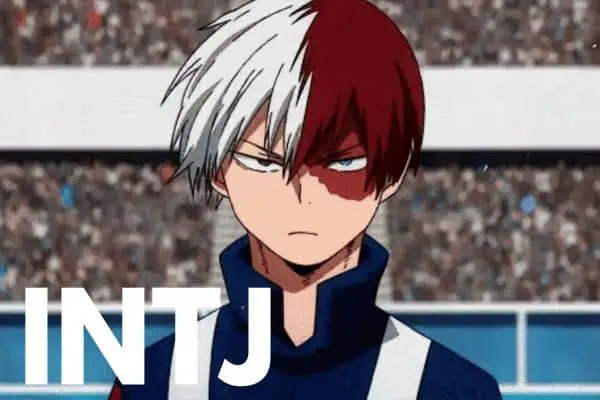
“I want to be a hero too… just like you. But I’m going to do it my way.”
Shoto’s childhood was a power struggle dressed up as parenting. His father didn’t raise a son—he engineered a symbol. But Shoto doesn’t break. He freezes the mold and redraws the lines himself.
His Ni gives him direction, even when his emotions are locked behind ice. His Te keeps him moving—sharp, tactical, efficient. Fire is off-limits, not because he can’t use it, but because he won’t let his father’s legacy dictate his future. That choice? Pure Fi. Quiet, firm, nonnegotiable.
What makes him heroic isn’t just strength—it’s restraint. In a world full of explosive personalities, Shoto holds the line. And when he finally integrates both halves of himself, it’s not a power-up. It’s a reclamation.
20. Shinobu Kocho – Demon Slayer
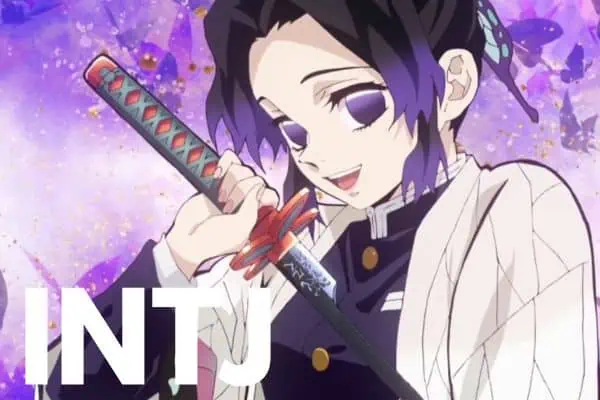
“I may be the only swordswoman among the Hashira who cannot cut off a demon’s head… but I have found another way to fight.”
Shinobu Kocho is the INTJ cloaked in sweetness, strategy masked by a smile. Soft-spoken and elegant on the surface, she moves like a butterfly—but every gesture is calculated, every word laced with brutal rationality. Her presence disarms. Her intellect finishes the job.
Shinobu’s dominant Introverted Intuition (Ni) reveals itself in her visionary approach to combat. While others chase brute strength, she refines her own method. She can’t overpower demons physically, so she outsmarts them chemically, using poisons she developed through obsessive experimentation.
Even her smile is more about armor than sweetness. Beneath it is a quiet, relentless fury. Shinobu’s Inferior Se shows up in her struggle to regulate overwhelming sensations—grief, anger, physical stress. When her sister was murdered, that pain didn’t break her composure—it crystallized it. She locked it down and channeled it into a mission so focused it sometimes veers into self-destruction. INTJs don’t always process trauma outwardly. They encode it into purpose.
21. Gandalf – The Lord of the Rings
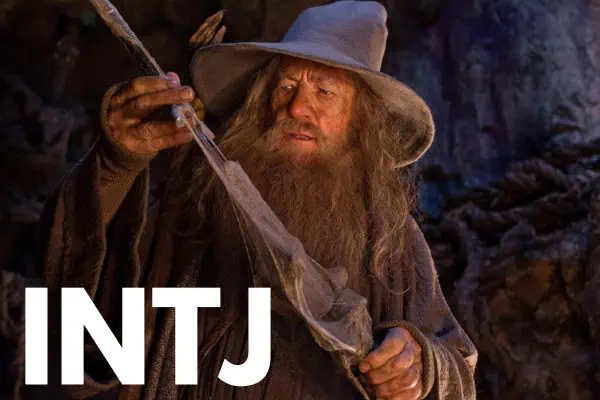
“All we have to decide is what to do with the time that is given us.”
Gandalf is the INTJ as ancient strategist—eternally composed and deeply committed to the long game. He moves through the world like a shadowy catalyst, setting plans in motion, nudging pieces into place, letting others believe they’ve made their own choices—because they have, but only within the range he’s anticipated.
His dominant Ni is vast and mythic in scale. Gandalf sees ahead. He senses the trajectory of evil rising, the fracture points in alliances, the weight of seemingly small choices made in quiet corners of the world. He entrusts the fate of Middle-earth not to kings or warriors, but to a hobbit with a sturdy heart and stubborn kindness—because he’s playing the deepest layer of the game.
22. Canute – Vinland Saga
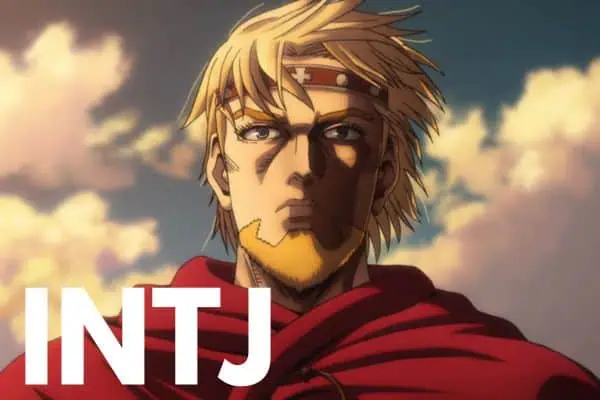
“I will create a worldly paradise in this land. A place of peace and prosperity… Perhaps the work will not be finished in my generation. But I will be the one to take that first bold step.”
Canute was soft-spoken until the world sharpened him. Then he stopped asking questions and started issuing edicts. His Ni reemerges with a vengeance—no longer introspective, but imperial. He’s not playing defense anymore. He’s building something that will outlive him.
His Te shows up in cold policy, calculated sacrifice, and the quiet confidence of someone who’s already decided what price peace will cost. He sees paradise as a blueprint. One he will finish in blood if he has to. But there’s a toll. The hallucinations, the detachment, the way he stares into the middle distance like he’s trying to outrun regret. He’s not heartless. He just doesn’t have time for sentiment until it’s already too late.
23. Ritsu Kageyama – Mob Psycho 100
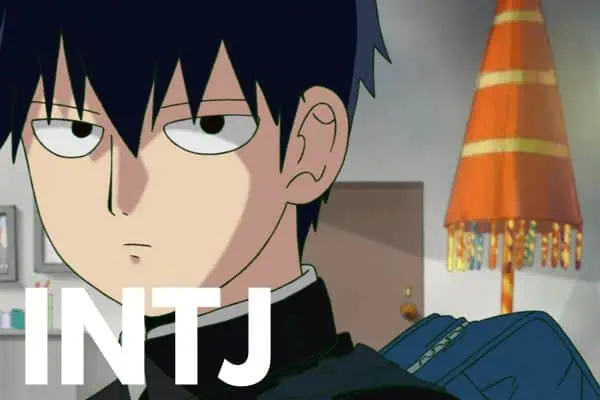
“I’m much freer than all of you… Why? Because I’ve lost my limits. I’ve obtained loss!“
Ritsu has the grades, the vision, the student council seat. But what he really wants is what Mob has—power that bends spoons and rewrites the laws of physics. His Ni obsesses over it. His Te figures out how to fake it ‘til he doesn’t have to.
When he finally gets those powers, it’s like cracking open a pressure valve. The resentment floods in. He stops being nice. He stops pretending. And for a while, it feels good. Until it doesn’t. Because beneath the ambition is Fi—ashamed, scared, still looking for his brother’s approval even while trying to outgrow it.
24. Satsuki Kiryūin – Kill la Kill
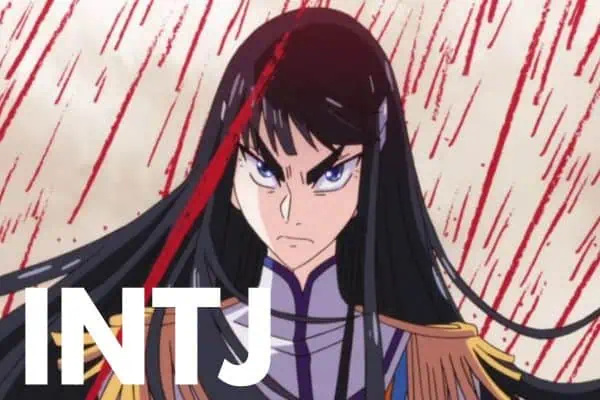
Fear is freedom. Subjugation is Liberation. Contradiction is truth.
Satsuki doesn’t make threats. She makes declarations—and then backs them with the kind of authority that makes people bow. Her Ni is honed to a blade’s edge. She doesn’t just predict outcomes—she builds them into inevitability.
Her Te leads armies. She commands entire student populations like generals, turning every duel into a lesson, every failure into fuel. But her power isn’t about dominance—it’s about survival. About reclaiming her story from the mother who tried to write it for her.
Underneath the cold perfection is quiet, ruthless loyalty. She drinks bitter tea to spare her butler’s feelings. She risks everything for the sister she was raised to destroy. And she never once loses sight of the endgame—even when it means sacrificing her crown to finish what she started.
25. Huey Freeman – The Boondocks
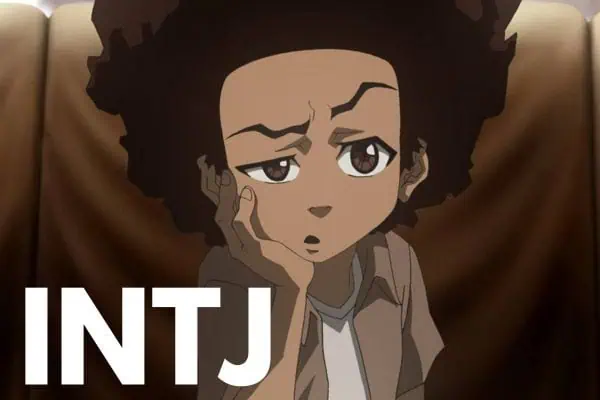
Vision? What do you know about my vision? My vision would turn your world upside down, tear asunder your illusions, and send the sanctuary of your own ignorance crashing down around you. Now ask yourself, Are you ready to see that vision?
Huey walks through the world like someone who’s already seen the final chapter and is just waiting for everyone else to catch up. He doesn’t waste time on small talk—he’s too busy dissecting capitalism, corruption, and conspiracy before breakfast.
Ni is Huey’s native language. He sees the machinery behind every system and the illusion behind every authority figure. His Te channels that into essays, blueprints, and revolutionary plans that might involve Molotov cocktails but never cheap punches.
He’s ten years old and somehow already too tired for hope—but he holds on to it anyway. Not the feel-good kind. The kind that reads history, watches patterns, and still believes change might be possible if someone—anyone—listens. He’s here to rebuild the world. Or at least tell you why it’s broken.
26. Tatsuhiko Shibusawa – Bungou Stray Dogs
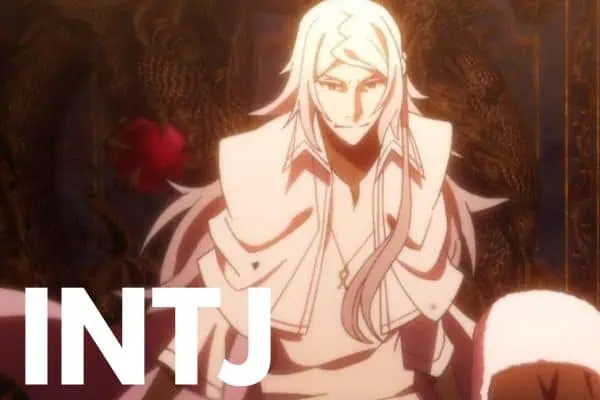
“I understand everything, now. Why I’m here, why you appeared before me, and what his words mean… You must be the angel who saves me.”
Shibusawa doesn’t cause chaos because he enjoys it—he causes it because everything else bores him. He’s the kind of INTJ who already knows how the story ends and picks fights with fate just to feel something. His dominant Ni gives him eerie foresight and predictive control; he doesn’t just plan for outcomes, he bends the narrative toward them.
His Te helps him engineer rather than improvise. War, theft, manipulation? Just puzzle pieces for a bored genius looking to break his own ennui. But what he really wants isn’t power—it’s proof that anything in the world still has the power to surprise him.
At his core, he’s not driven by malice. He’s hollow. Detached not because he’s above it all, but because he’s lost touch with what being “in it” even feels like. When he finally dies, it’s not fear on his face. It’s relief.
27. Nine – Terror in Resonance
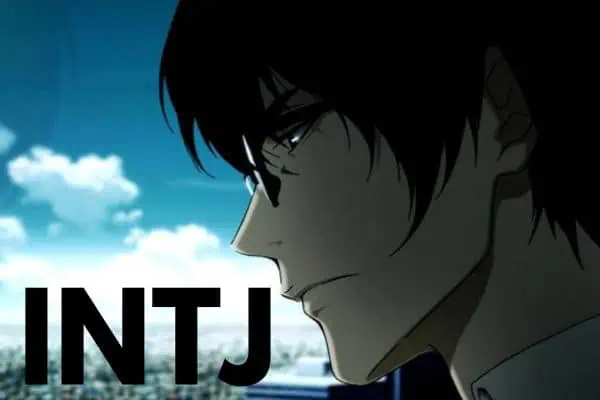
“They were weak. That’s why they died. We were weak, too. That’s why we couldn’t save them.”
Nine is the INTJ as ghost-in-the-machine—cool, precise, and haunted by a past that burns through his composure in flickers. A master strategist with a mind built for encryption, Nine operates like a shadow—out of reach, out of sight, but always in control. His dominant Ni is razor-sharp, allowing him to anticipate moves, manipulate systems, and play cat-and-mouse games with government forces while staying ten steps ahead. Paired with Te, he doesn’t waste time on flair or emotion—just execution. Every bomb, every riddle, every act of sabotage serves a larger purpose: to reveal what’s been hidden and demand accountability for the sins no one wants to see.
But even as he projects an aura of cold detachment, Nine is quietly falling apart. Trauma doesn’t vanish—it calcifies beneath the surface. His panic attacks and dissociation hint at an inferior Se straining under the pressure of a life lived too much in his own head. And while he tries to suppress his Fi, it leaks through in his loyalty to Twelve and his silent grief for Five—the girl he couldn’t save, the ghost he never stopped carrying. Nine isn’t cruel; he’s compartmentalized. His sadness wears a poker face. His revenge comes with riddles. And his kindness, rare and quiet, lives in how much of himself he’s willing to destroy to make the truth known.
28. Ellen Ripley – Alien
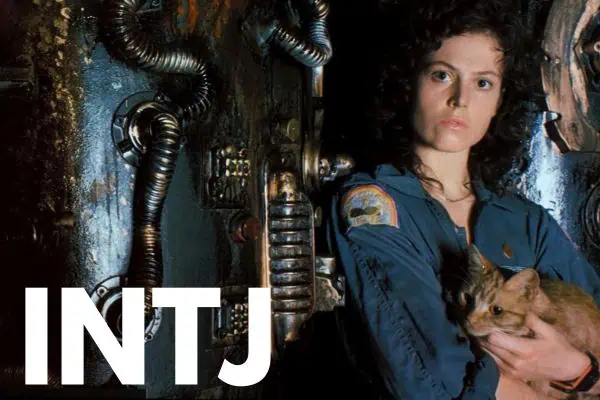
You are my lucky star. You… Lucky, lucky, lucky, lucky, lucky.
Ellen Ripley is the INTJ as survivalist—unflinching, rational, and too focused on staying alive to waste time proving herself. In a crisis, her dominant Ni kicks in under pressure, cutting through chaos to identify long-term threats no one else sees—like when she insists on quarantine protocol while everyone else argues sentiment. She doesn’t need validation. She needs containment. Her auxiliary Te gives her a no-nonsense approach to leadership: clear orders, efficient systems, zero tolerance for stupidity. Ripley is all about execution and long-term safety over short-term emotional appeals.
But what makes Ripley more than a hardened shell is her quietly burning Fi—her ability to care deeply without putting it on display. She’s devastated by loss, loyal to those who’ve earned her trust, and fiercely protective once someone breaks through her walls. She doesn’t soften easily, but she doesn’t lose her humanity, either. She’s not driven by ego or vengeance—she’s driven by survival with integrity. When everything collapses, Ripley doesn’t. She adapts, evolves, and endures.
29. Kokichi Muta (Mechamaru) – Jujutsu Kaisen
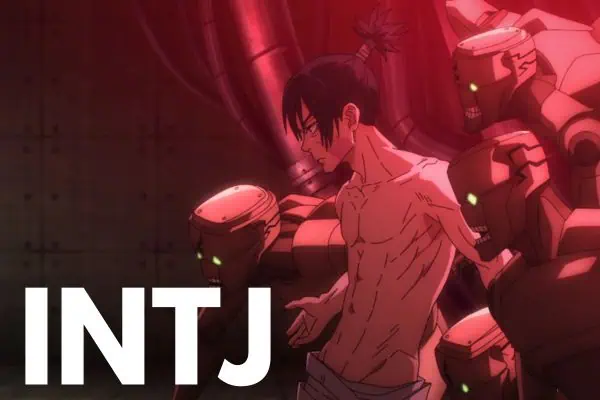
“The fact that a doll like you and not a human like me gets to live so carefree in the sun really pisses me off!”
Kokichi is what happens when a mind burns brighter than the body it’s stuck inside. Sickly and sidelined, he builds a proxy just to be seen. His Ni runs on longing—watching, studying, calculating a life he’s never fully allowed to live. His Te keeps the machine moving, even when the heart behind it is breaking.
He isn’t cold. He’s desperate. Desperate enough to sell secrets to the enemy, desperate enough to install protections in the fine print so his friends won’t die because of him. His Fi pulses beneath the circuits—a deep, aching need for connection that he doesn’t trust the world to give him.
And when he finally gets a real body? He doesn’t waste it. He fights like hell. For one shot at presence—one moment to exist as more than a ghost in the system.
30. Kat Stratford – 10 Things I Hate About You
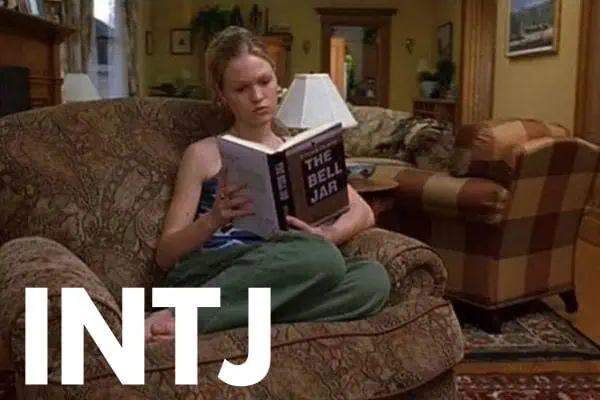
“But mostly I hate the way I don’t hate you. Not even close, not even a little bit, not even at all.”
Kat has no time for your norms, your cliques, or your teenage-boy nonsense. She reads The Bell Jar, calls out misogyny before first period, and wields sarcasm like a precision weapon. Her Ni cuts through the noise. Her Te cuts through your excuses.
But Kat isn’t mean. She’s just allergic to pretense. She doesn’t soften because soft has been punished. Her Fi holds deep values, buried under all that armor—values she’s not willing to compromise, even if it means being the loner in the back row.
And when she finally lets someone in, it’s not a betrayal of her standards—it’s proof that someone met them. Kat doesn’t want to be rescued. She wants to be understood. And when she is? That’s the real victory.
31. V – V for Vendetta
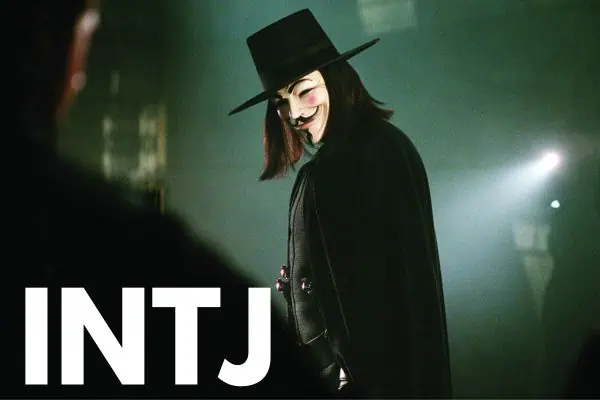
“People should not be afraid of their governments. Governments should be afraid of their people.”
V is the INTJ as mythic revolutionary—strategic, theatrical, and forged in agony. A victim of brutal state experimentation and the sole survivor of a death camp, V reemerges not as a man, but as an idea in motion. Every act, every explosion, every rose has purpose. His Ni builds a narrative that rewrites tyranny with theater, turning resistance into ritual.
He orchestrates his revolution with Te discipline, treating rebellion like symphony composition. And yet under the mask lives a brutal kind of empathy—one that wounds and liberates in the same breath. He doesn’t just destroy the system. He remakes Evey, too. With riddles. With pain. With love twisted into metaphor.
32. Thanos – Avengers: Infinity War / Endgame
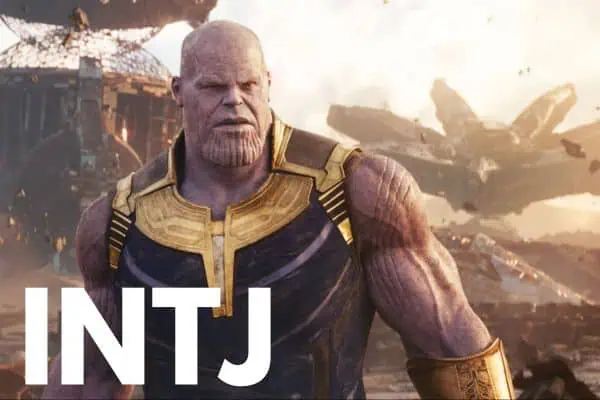
“I know what it’s like to lose. To feel so desperately that you’re right, yet to fail nonetheless. It’s frightening. Turns the legs to jelly. I ask you, to what end? Dread it. Run from it. Destiny arrives all the same. And now, it’s here. Or should I say, I am.”
With Thanos, there’s weight to every word, every move. His Ni has long since mapped the universe’s descent into imbalance, and his solution—horrifying in scope, ruthless in execution—feels, to him, like mercy. That’s the power of conviction sharpened by distance.
With Te as his executioner, he constructs the logistics of genocide like a man planning a harvest. Efficient. Unemotional. Focused. And yet there’s an undertow of sentiment twisted into ideology. He mourns what he sacrifices. He names what he loves. He follows through anyway.
33. Jaqen H’ghar – Game of Thrones
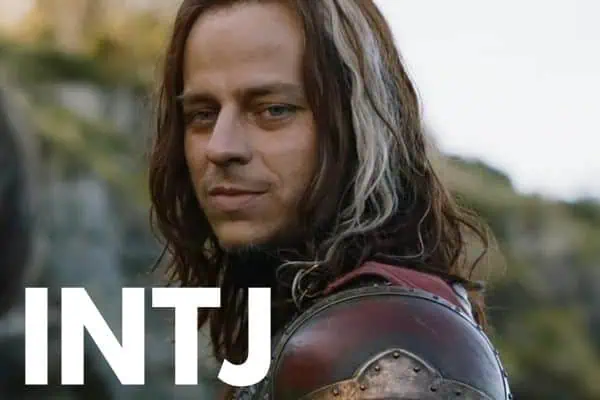
“Death is certain. The time is not.”
Jaqen moves with the stillness of someone who already knows the outcome. He speaks in ritual, fights in silence, and teaches with paradoxes sharp enough to cut skin. Ni is the current beneath everything—pulling him through identities, loyalties, and death like stepping stones in a river only he can see.
His Te shows up in the deal-making. Three names, three deaths, nothing wasted. He trains Arya with precision, not sentiment, guiding her toward purpose with discipline so pure it almost feels cruel.
Jaqen carries no ego. Just a contract. A role. A philosophy built from detachment and steel. If he bends the rules, it’s because he sees further than them.
34. Andy Dufresne – The Shawshank Redemption
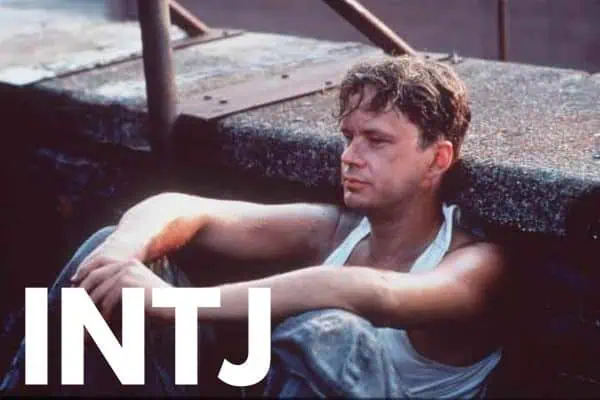
“Hope is a good thing, maybe the best of things, and no good thing ever dies,”
Andy Dufresne is the INTJ as quiet insurgent—reserved, methodical, and relentlessly future-focused, even from within a prison cell. Wrongly convicted and dropped into the dehumanizing system of Shawshank, Andy doesn’t lash out. He watches. Learns. Plans. His dominant Ni keeps him locked on the long game: not just escape, but transformation—from powerless inmate to mythic liberator. His Te emerges through spreadsheets, chess pieces, and rock hammers—tools repurposed into instruments of control. Andy doesn’t need power over people. He just needs control over his trajectory. And while others break under the weight of incarceration, Andy builds a tunnel.
35. Kai Chisaki (Overhaul) – My Hero Academia
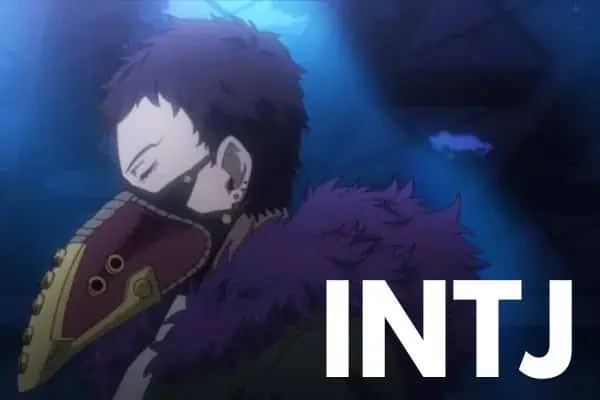
“If you’ve got this many people, you should have a bigger goal.”
Kai Chisaki is the INTJ as clinical extremist—cold, calculated, and obsessed with restoring a world that makes sense to him. As the leader of the Shie Hassaikai, Chisaki doesn’t waste energy on theatrics. His Ni–Te pairing locks him into a singular vision: purge Quirks from society and rebuild the yakuza’s glory through fear and biological warfare. His long-term planning is scarily meticulous, every move engineered to collapse the existing power structures while elevating his own. And when something unexpected happens, like emotional interference or hero interference, he doesn’t panic—he refocuses, hardens, eliminates the variable.
Underneath his surgical precision lies the rotting core of repressed Fi. Chisaki isn’t emotionless—he’s repulsed by mess, by contact, by imperfection. His germaphobia is a literal manifestation of his disgust with the disorder of humanity. He’s loyal to the Hassaikai in principle, but will erase anyone—including his own mentor—if they compromise the plan. His inferior Se leaks out in bursts of overwhelming violence, especially when control slips through his fingers. Chisaki doesn’t want power for indulgence. He wants it to sterilize the chaos, to return the world to a logic only he understands. But that vision isolates him, calcifies him, and ultimately destroys him. Because when you treat people like diseases, you end up alone in a vacuum—clean, but empty.
What Are Your Thoughts?
Do you have any fictional characters that you’d like to see on this list? Share your thoughts with fellow readers in the comments!
Find out more about your personality type in our eBooks, Discovering You: Unlocking the Power of Personality Type, The INFJ – Understanding the Mystic, The INFP – Understanding the Dreamer, and The INTJ – Understanding the Strategist. You can also connect with me via Facebook, Instagram, or Twitter!
Other Articles You Might Enjoy:
10 Things You Should Never Say to an INTJ
The Childhood Struggles of INTJs
24 Signs That You’re an INTJ, the “Strategist” Personality Type
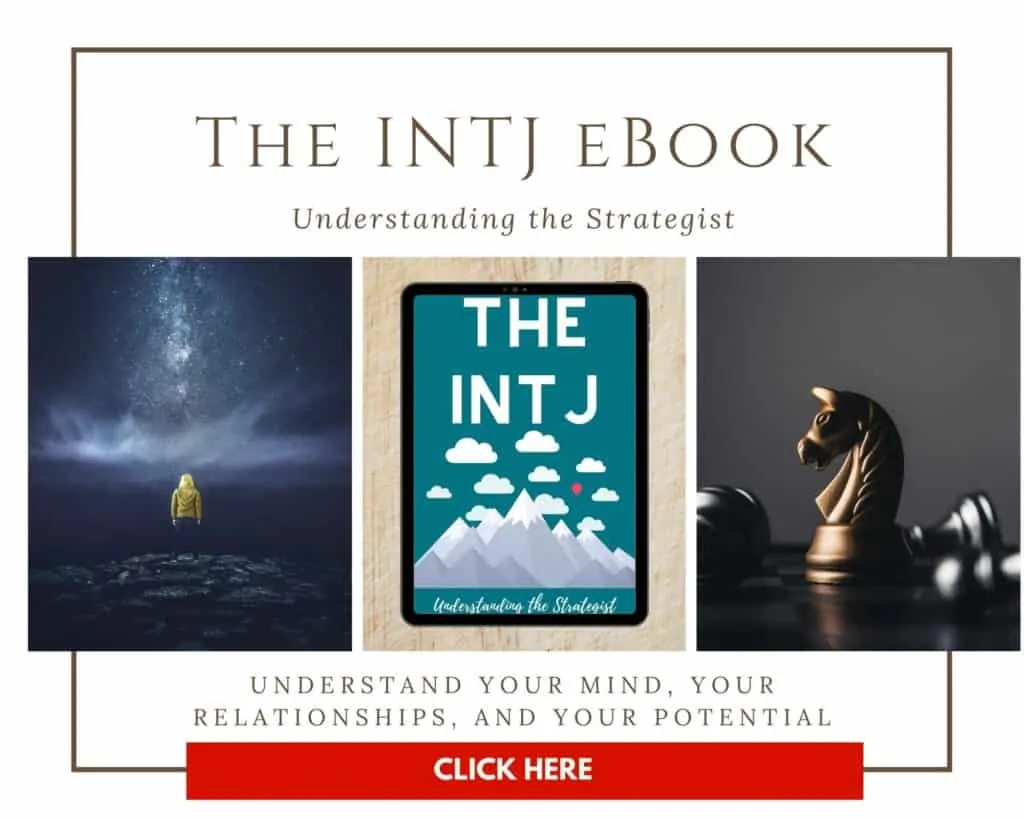





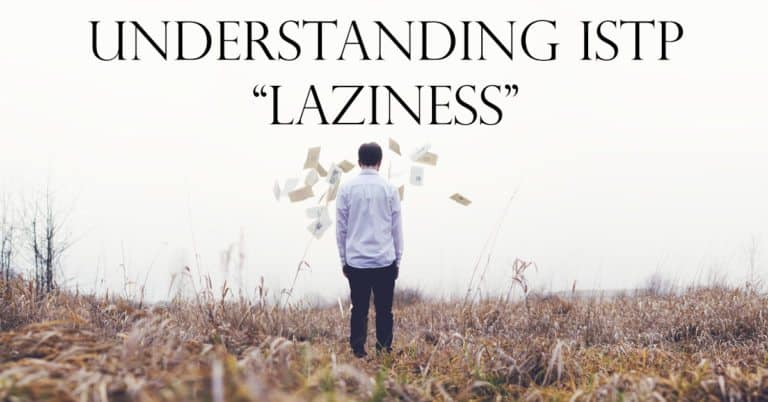
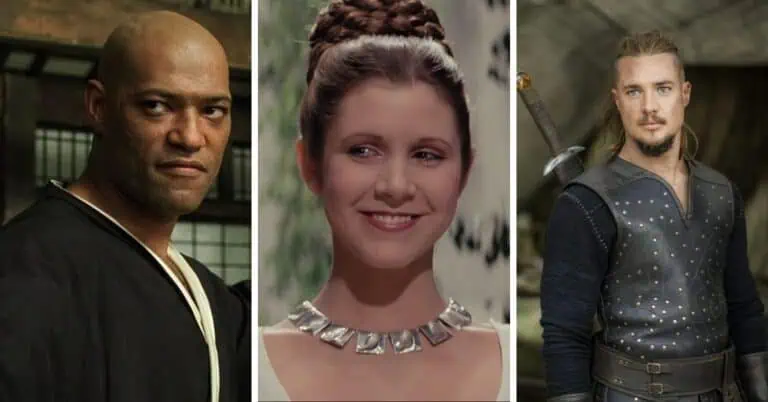

Hello,
MCU’s Stephen Strange look more like an ENTJ to me, or at least, an INTJ very focused on the goals that drive the enneatype 3.
Ender may look like an INFJ, but I think INTJs like him are misunderstood.
INTJs can feel deep emotions and be very in touch with the heart.
Fe from INFJ is more expressive. Fi from INTJ is deeper. Both can act on a similar way, but under the surface, you will find that INFJs can access emotions more freely, more easily, where INTJs can struggle to reach what they feel.
You will find that quickness in the way INFJs feel the world that INTJs have not.
And where INFJs gain that quickness, they lose the “focus ability” that most INTJ have.
However, INFJs have access to tertiary Ti that helps them to be more focused when they very need it. And INTJs have access to tertiary Fi that helps them to be more in touch with what they feel about something when they very need it.
Some INTJs have more access to Fi than Te, some INFJs have more access to Ti than Fe. Introverted loop… Ni-Fi and Ni-Ti. But, we can always perceive the different way that Te-Fi and Fe-Ti take when a person act, speaks or express themselves.
Lisbeth Salander is ISTP. She is opportunistic, not someone with one ideal to how the world should be. She play hard, but she isn’t a dictator.
I love these characters! They’re all so interesting and unique.
I love these characters! They’re all so interesting and unique.
Great list! I’m always fascinated by the complexity and depth of INTJs in fiction, it’s interesting to see how different authors portray them.
Hi Susan,
A recent movie I really liked was “A Man Called Otto” with Tom Hanks as the star. Hanks as Otto is not an INTJ; he clearly appears, at least to me, to be an ISTJ. But it is a very moving movie about how Otto’s tragic loss of his young wife leads him to become a bitter misanthrope until his sympathetic young neighbor makes an effort to help him. Very moving. Tom Hanks is a superb actor.
What a fantastic list! It’s always intriguing to see how INTJ traits manifest in different fictional characters. I especially loved the insights on Sherlock Holmes and Katniss Everdeen. They each showcase the complexity and depth of INTJ personalities so well. Thanks for sharing this!
I absolutely loved this post! It’s fascinating to see how INTJ traits are represented in such a diverse range of fictional characters. Characters like Sherlock Holmes and Walter White really showcase the brilliance and complexity of the INTJ personality. It’s always exciting to find ones that resonate with us in different ways. Keep up the great work!